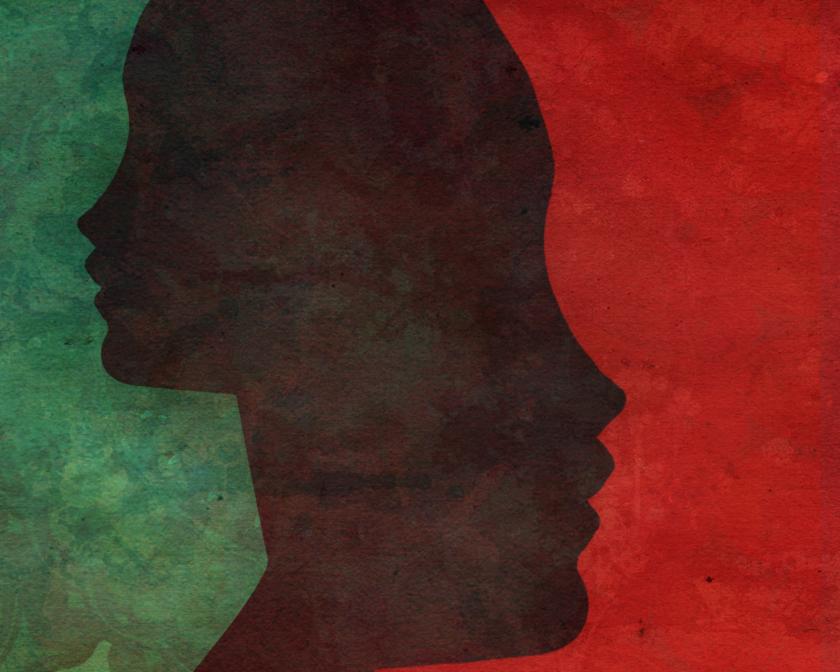In this article, we will cover the key differences between borderline personality disorder vs bipolar disorder (borderline personality disorder vs bipolar). To understand the thin line between the two overlapping disorders, read this blog post.
Contents
What Is a Borderline Personality Disorder?
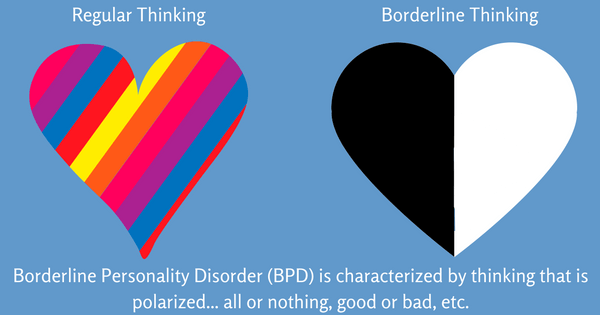
A borderline personality disorder is a mental health condition that is characterized by unstable moods, behavior, and relationships. People with a borderline personality disorder may experience intense emotions and have difficulty regulating their thoughts and feelings. As a result, they may act impulsively and engage in risky behaviors. They may also have problems maintaining stable relationships.
What Are The Symptoms of Borderline Personality Disorder?
According to the DSM-IV (Diagnostic and Statistical Manual of Mental Disorders, Fourth Edition), a person suffers from borderline personality disorder when he/she exhibits at least five out of nine specific symptoms. These include:
- Fear of abandonment: This can be noticed through panic attacks or constant worry that your partner will leave you;
- Intense and unstable relationships: People who suffer from this disorder tend to have very intense, quick-changing, and unstable personal relationships;
- Extreme impulsivity in areas that are self-damaging (e.g., spending money irresponsibly or promiscuous sex);
- Self-harming behaviors like cutting the skin with sharp objects etc.;
- Suicidal risk-taking behavior;
- Distorted and unstable self-image or sense of identity;
- Unstable moods like depression, anxiety, etc.;
- Chronic feelings of emptiness;
- Intense anger (often to the point where they may physically harm themselves); and finally,
- A pattern of intense and chaotic interpersonal relationships characterized by alternating between extremes of idealization and devaluation.
What Is Bipolar Disorder?
Bipolar disorder, formerly known as manic depression, is a mental illness that is characterized by extreme mood swings- from extremely high (mania) to extremely low (depression). These swings can occur in rapid succession or over extended periods. People with bipolar disorder often have periods of normal mood as well.
What Are The Symptoms Of Bipolar Disorder?
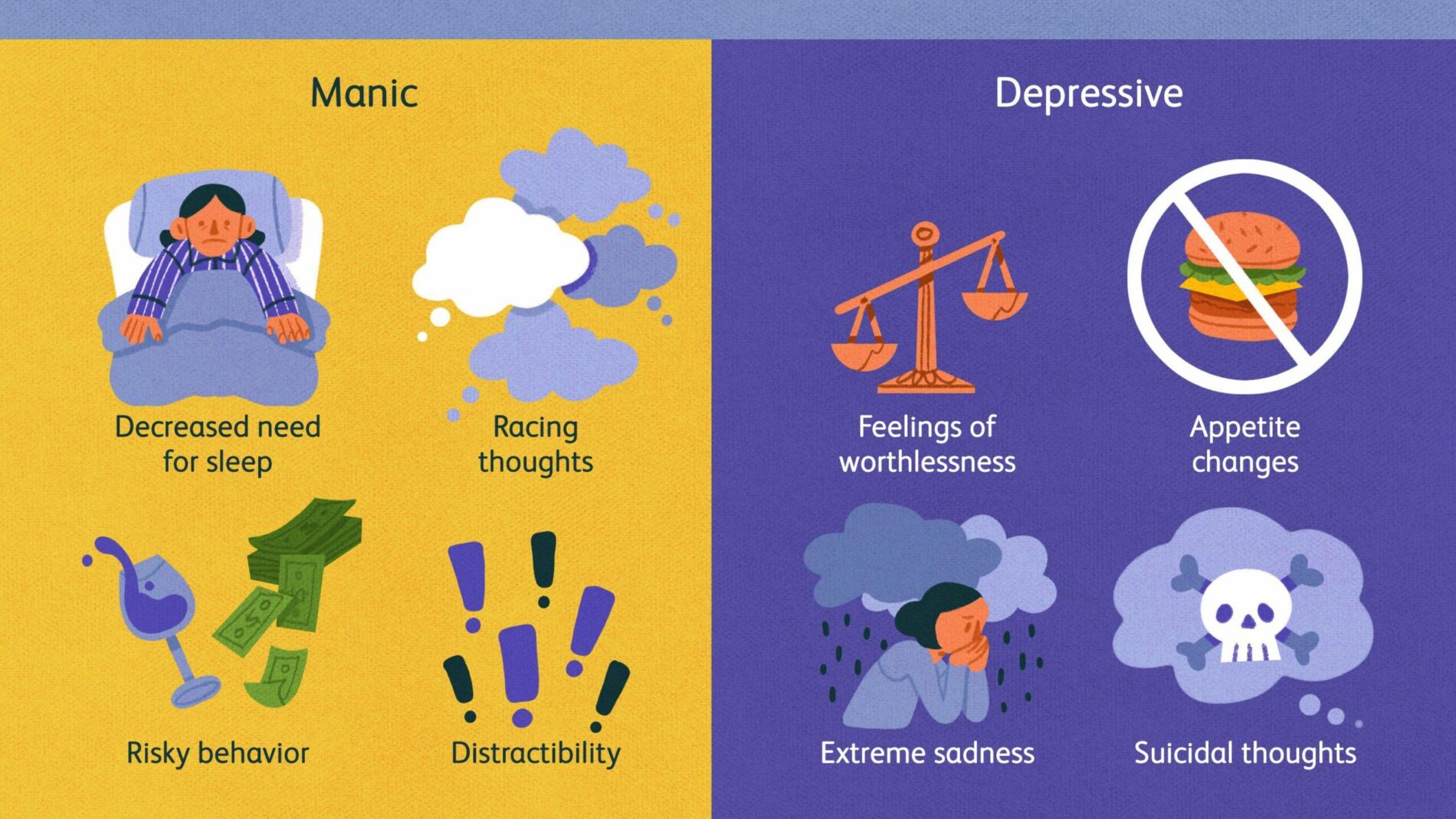
Mania symptoms
- Excessive happiness, excitement, irritability, or energy;
- Unusual talkativeness or rapid speech;
- Racing thoughts;
- A decreased need for sleep (e.g., able to go days without sleeping);
- Grandiose delusions (believing that you are very powerful, special, or famous); and
- Poor judgment.
Hypomania symptoms
- Excessive happiness, excitement, irritability, or energy;
- Unusual talkativeness or rapid speech;
- Racing thoughts;
- A decreased need for sleep (e.g., able to go days without sleeping); and
- Grandiose delusions (believing that you are very powerful, special, or famous).
Depression symptoms
- Feeling sad, hopeless, worthless, or helpless;
- Loss of interest in activities once enjoyed;
- Changes in appetite (usually a decrease in appetite or weight loss), which can lead to problems with sleeping, energy, and concentration;
- Thoughts of death or suicide;
- Aches, pains, headaches, cramps, or digestive problems that do not go away; and
- Sleeping too much (oversleeping) or too little (insomnia).
Borderline Personality Disorder vs Bipolar Disorder
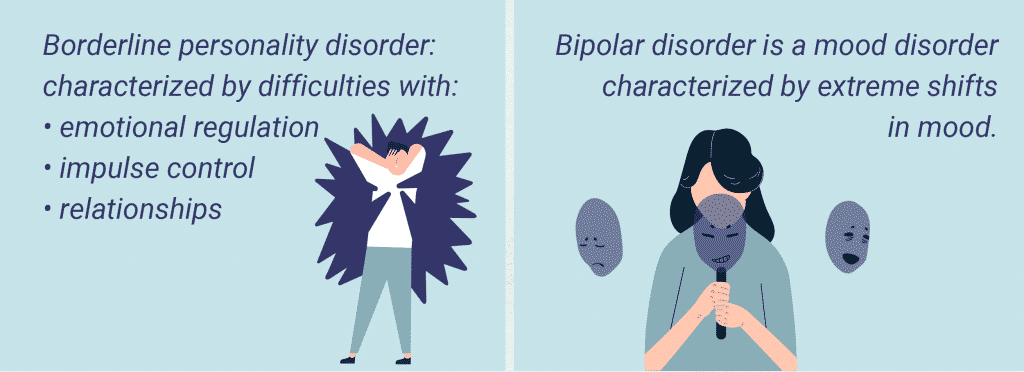
The key difference between bipolar disorder and borderline personality disorder is that while people with bipolar disorder experience uncharacteristic highs (mania) or lows (depression). Those with borderline personality disorder typically have extremely unstable emotions- swinging from intense idealization of others to devaluation and anger.
DSM-5 On Borderline Personality Disorder vs Bipolar Disorder

There is no official diagnosis of “bipolar personality disorder” in the Diagnostic and Statistical Manual of Mental Disorders, Fifth Edition (DSM-V). However, several presentations within bipolar disorder describe patterns or types.
From the DSM-V: “Bipolar personality disorder is a pattern of traits and behaviors that indicate a person has a diagnosis of bipolar I or II disorder. To be diagnosed with bipolar personality disorder, an individual must have experienced at least one hypomanic episode (a period of elevated mood) and one major depressive episode.”
What Are the Key Things to Be Taken Care of While Doing a Diagnosis?
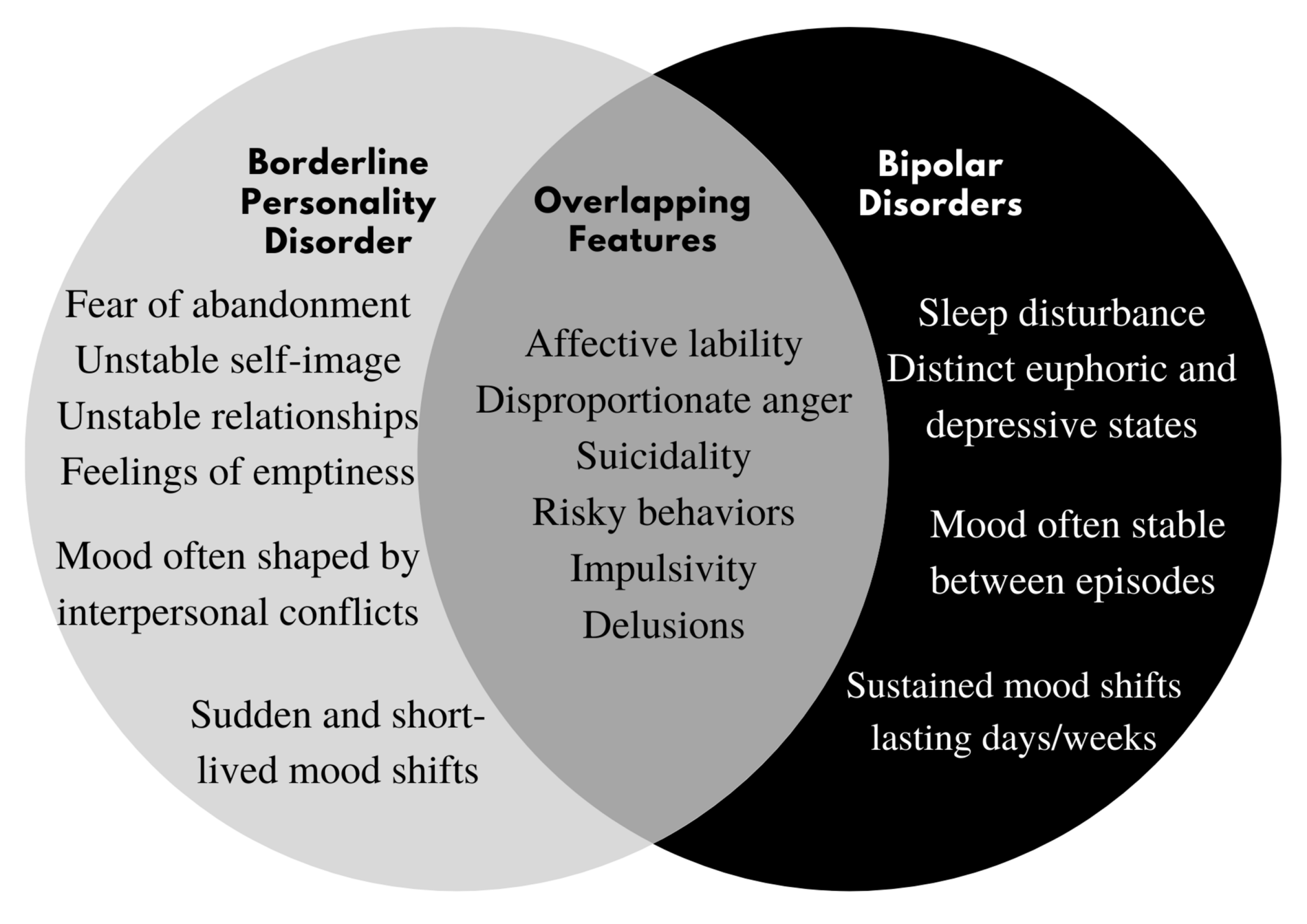
When diagnosing either borderline personality disorder or bipolar disorder, it is important to rule out other potential causes of symptoms. Like thyroid problems, head injury, alcohol or drug abuse, and medications. It is also important to differentiate between symptoms that occur only during depressive or manic episodes.
How Often Do Moods Change?
Mood changes can be common in borderline personality disorder since people with this condition have very unstable emotions. However, mood swings are more likely to happen without warning- often lasting less than a day and not related to any specific event. In bipolar disorder, mood swings are more likely to follow a pattern or be triggered by something.
Is Sleep Normal?
In people with borderline personality disorder, sleep problems can be common. This may include difficulty falling asleep, staying asleep, or experiencing restless and unsatisfying sleep. While people with bipolar disorder may also experience sleep problems. These problems, however, are related to their manic and depressive episodes.
Is There a Family History?
In bipolar disorder, there is often a family history of the illness or depression. In borderline personality disorder, this may be less common- but if present it can help with diagnosis.
Are Relationships Often Unstable?
Relationships in people with borderline personality disorder are often unstable- due to fears of abandonment. Those with bipolar disorder may also experience relationship problems, but these problems are related to mood swings rather than fear of abandonment.
Is Self Harm a Symptom?
Self-harm is more common in people with borderline personality disorder, while self-harm can be present in both conditions.
Experts’ Opinion on These Disorders
There is still some disagreement among experts about whether borderline personality disorder and bipolar disorder are two separate disorders. However, most experts now believe that they are different conditions with some overlapping symptoms.
Conclusion
If you or someone you know experiences a lot of mood swings and instability, it is important to seek help. While bipolar disorder and borderline personality disorder can be difficult to diagnose, there are treatments available that can help improve quality of life.
If you are looking for affordable Online Counseling MantraCare can help: Book a trial therapy session
